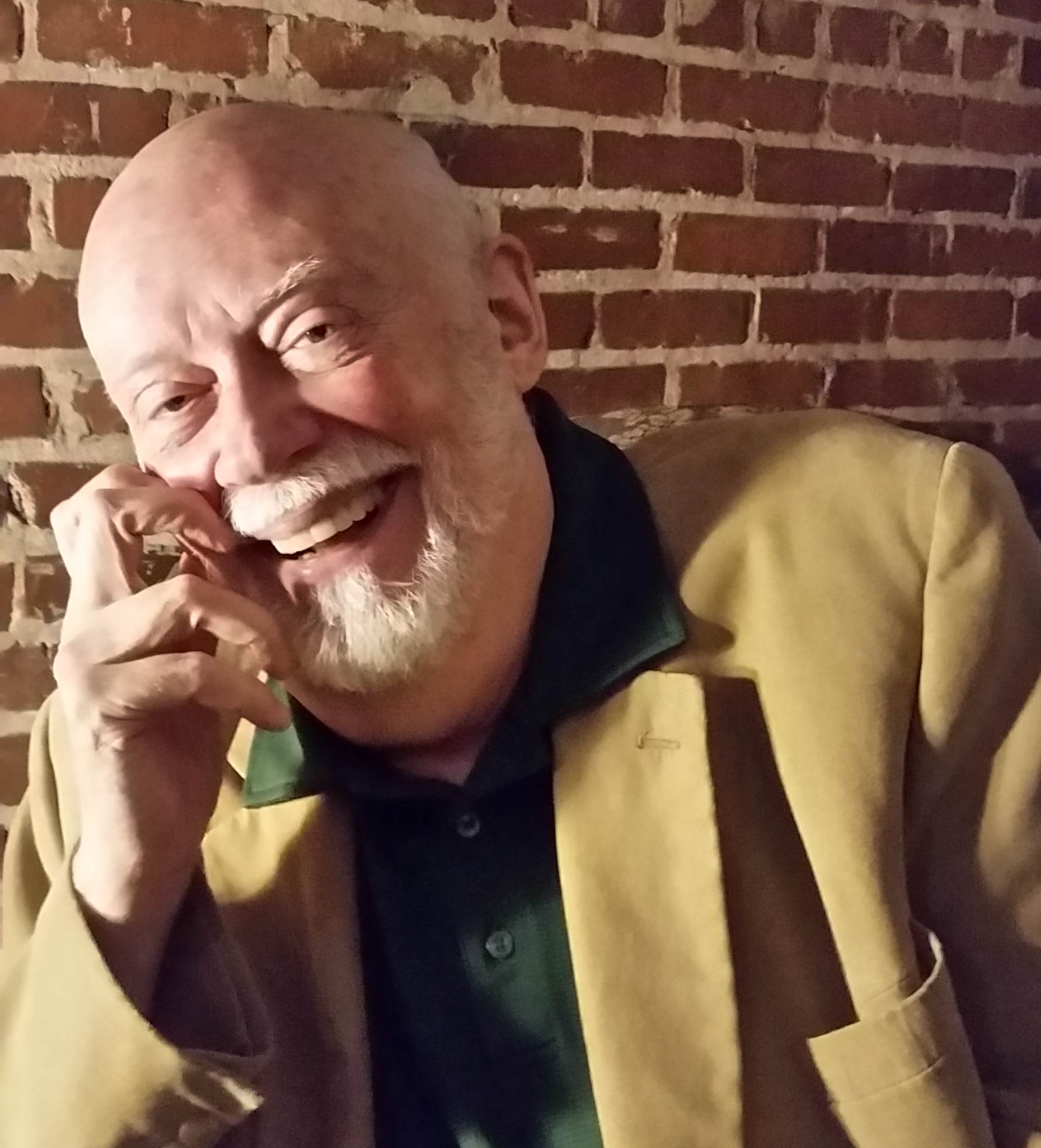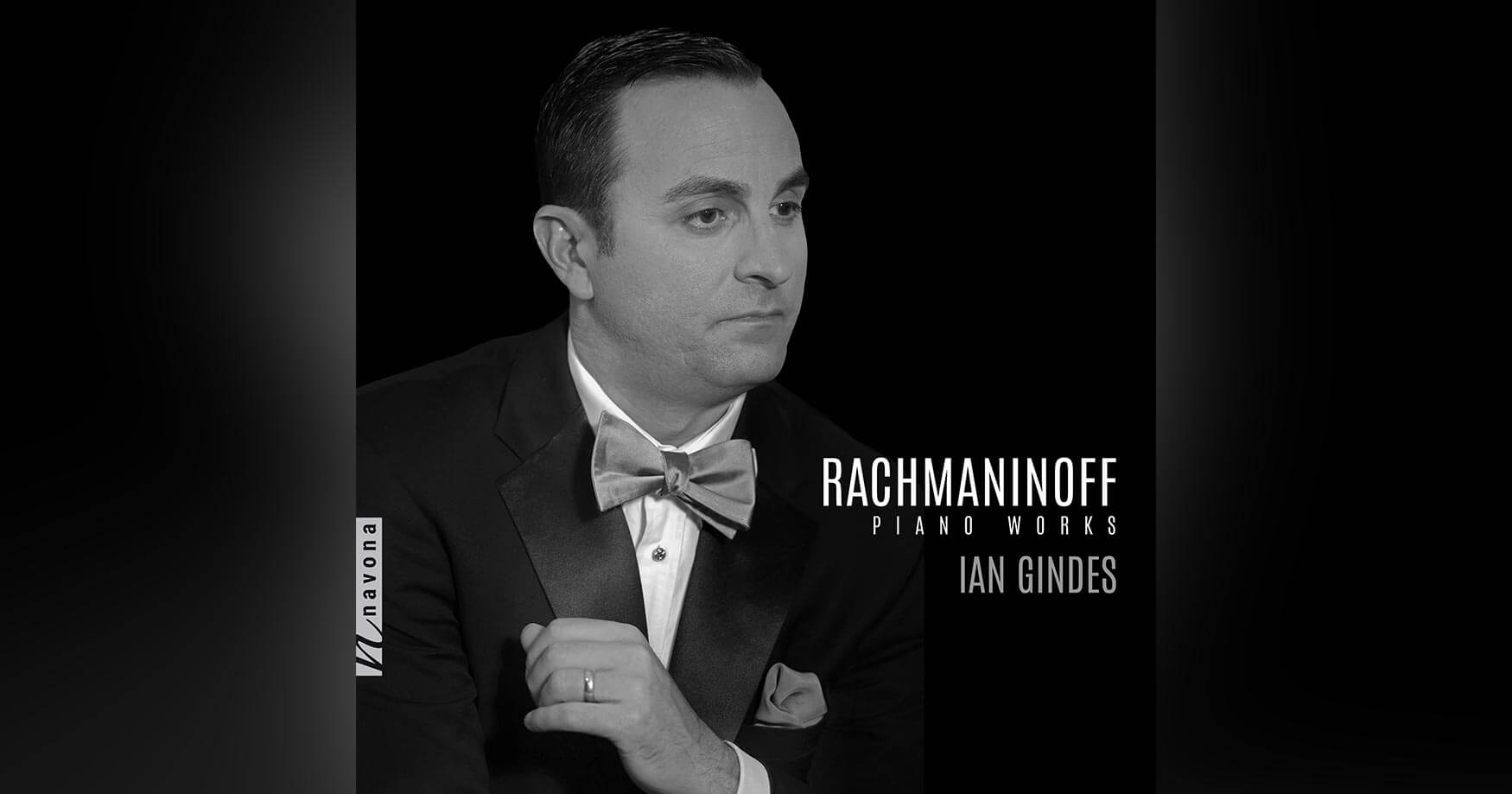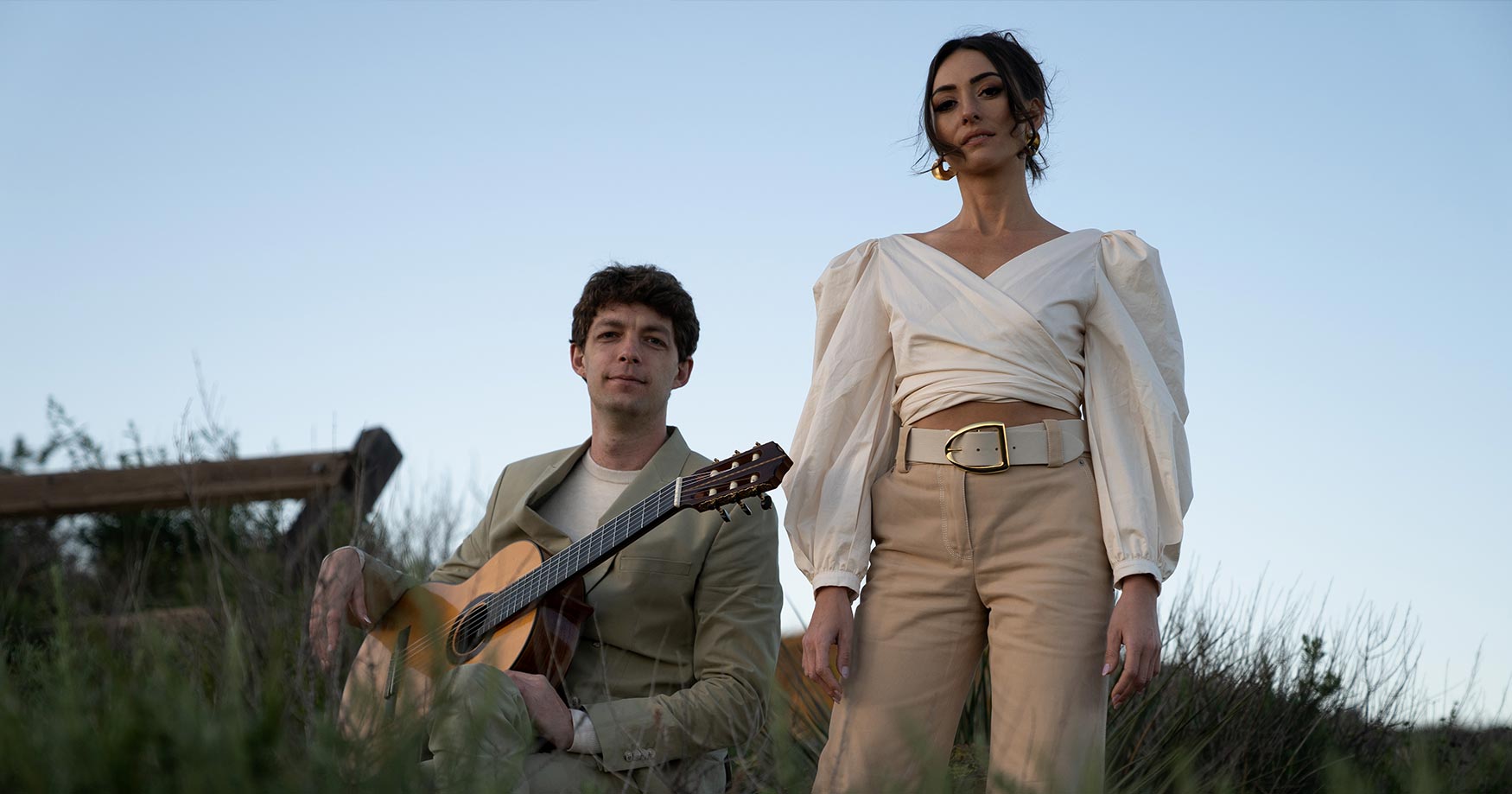Gary Smart’s career has encompassed a wide range of activities as composer, classical and jazz pianist, and teacher. Always a musician with varied interests, he may be the only pianist to have studied with Yale scholar/keyboardist Ralph Kirkpatrick, the great Cuban virtuoso Jorge Bolet, and the master jazz pianist Oscar Peterson. A true American pluralist, Gary composes and improvises music that reflects an abiding interest in Americana, jazz, and world musics, as well as the Western classical tradition.
Today, Gary is our featured artist in “The Inside Story,” a blog series exploring the inner workings and personalities of our artists. Read on to meet Gary’s feathered assistant when he is working on music…
Who was your first favorite artist(s) growing up?
There were many fine artists I loved growing up. Though I was isolated in a small town in Illinois, world class musical artistry was available to me through the Columbia Record club. Back in the fifties they sold LP’s of classical, jazz and pop music through the mail. The selections of the month were high level stuff: the New York Phil, Duke Ellington, Vladimir Horowitz, Dave Brubeck, the Budapest String Quartet, Benny Goodman, various pop singers, light classical stuff….on and on, a diverse offering of wonderful music. As often as not, the choices were made for me. The records came in the mail and I devoured them, listening to the music over and over. It was all news to me.
I didn’t know that there was a hierarchy, that one kind of music was more “intellectual” or “low brow” than another. I loved it all, tried to imitate it all, learned from it all. So strangely, a record club may have been the most important influence on my musicality when I was a little kid. Since my childhood I’ve always had very diverse and inclusive musical interests. It’s really kind of American, when you think about it, right?
When did you realize that you wanted to be an artist?
I was creative and a “performer” from the beginning. When I was five a piano tuner came to our house and played up a storm after he finished his tuning. I was completely transfixed. I hounded my parents for piano lessons. Soon I was spending hours by myself learning to play the piano, learning to read music, to notate music. I guess I was a prodigy, though that word was never used. As an 8-year-old I was playing along with records, giving little concerts, improvising. But no one made a huge deal of it. A little later I connected with a wonderful teacher and she guided me through until university. My parents were kind of mystified, but very supportive. In all other ways my childhood was very normal. But, there was never a question as to my becoming a musician. Music chose me as much as I chose music.
What was your most unusual performance, or the most embarrassing thing that happened to you during a performance?
You know, I’ve lived a long time now – 75 years. So I have lots of stories. Here are a couple of old favs:
My first real job was as a Ford Foundation composer in residence for the state of Alaska, back in the 1970’s. During that time my wife and I toured the state, mostly by small airplane, giving voice and piano concerts. After one concert in the Eskimo village of Unalakleet, as we were taking our last bows, the audience quieted down and an ancient woman said loudly from the back of the room, “Now we will thank these nice young people with song!” The entire audience of one hundred or so Eskimos sang “What a Friend We Have in Jesus” to us….in Eskimo! It was so unexpected, so crazy, so touching, so surreal!
All these years later, it still moves me, thinking of that strange cultural mix and the power of music to connect people.
And speaking of that Alaskan residency, I composed a piece for quadraphonic parrot and chamber orchestra during my first year there. No kidding. For some reason I had always wanted a parrot and I bought one in Anchorage. His name was Pablo and he was shipped up from Mexico. We soon learned he was already a very talented bird. He could recite a Christmas poem in Spanish, speak in many voices (old lady speaking through coughing, little boy, man speaking-singing, etc). He could laugh infectiously, cry like a baby, scat sing do-do-do. Naturally, as a composer I thought, “There’s a great piece of entertainment in this!” So I wrote “From the Diary of a Parrot,” a kind of avant-garde divertimento. The St. Paul Chamber Orchestra premiered it that same year. It got several performances after that, even a couple in London, though it hasn’t been performed now for years. It’s fun. A recording is on my website.
What is your guilty pleasure?
Well, I like to eat. I’m kind of a foodie. These days I have to watch my diet though. And I love pets, dogs, cats. birds. Pablo the parrot passed away several years back. Now I have a lovely African Grey, “Doc.” He sits on my shoulder and helps me write music and practice piano. He lets me know when it’s time for a break. He’s a big help actually.
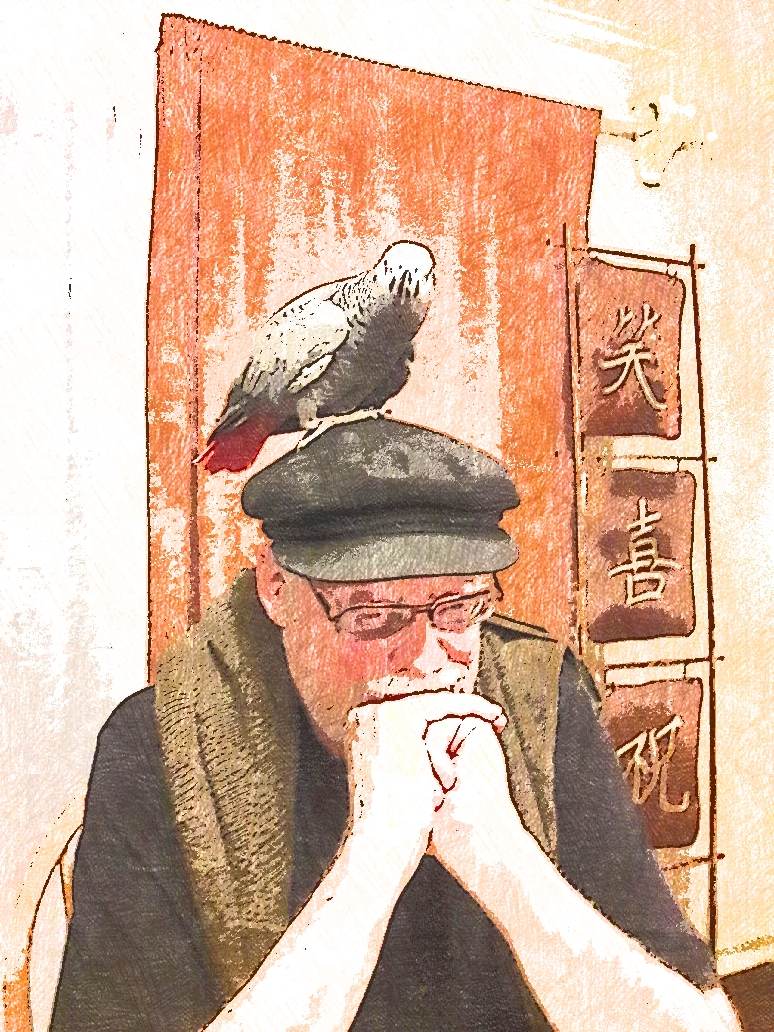
If you could make a living at any job in the world, what would that job be?
Well, that’s easy. I’m doing what I want to do. Oh I suppose I’d like to be rich and famous, but let’s get real. I am a very lucky man. I have always had the pleasure of performing, composing and teaching music for a living…and sharing that good life with my very musical wife and two wonderful, creative daughters. We have lived and worked all over the world, had many experiences, and there is still more to come. I can’t imagine “retiring.” I’m still enjoying doing what I have always wanted to do.
If you could spend creative time anywhere in the world, where would it be and why?
We lived with our two young daughters in Japan for three years. That was fabulously interesting and inspiring. I slowly learned to love the culture and the arts of Japan. We have revisited several times. Their arts and their respect and love of artistic things and experiences was and is still very inspiring to me.
If you could instantly have expertise performing one instrument, what instrument would that be?
Well, I am a throwback it seems. You know, there was a time when most composers were also performers, mostly keyboardists. I am a composer first, but I’m also a classical pianist, a jazz pianist, and a concert improviser of “new music.” My music usually comes to me easily. I feel it comes from the total self – the physical, intellectual, emotional, spiritual self. I tell my students, “Improvisation is just composition in the moment; composition is just carefully considered improvisation.” It’s all music making. I just let go and it happens. It “plays” itself, through me. Analysis comes later. And of course discarding, editing, and polishing is crucial. But for me too much planning, too much thinking makes for stale art. Of course, one has to find a balance. There’s a great Stravinsky quote, something like, “Don’t condescend to your fingers. They find wonderful things.” That’s certainly true as far as I’m concerned.
What was your favorite musical moment on the album?
The Altius Quartet plays with such musicality and commitment. My Fantasies really demand an understanding of African American musical inflection and that’s asking a lot from the standard classically trained musician. It is a pleasure to hear these fellows play those bluesy lines, those riffs and licks so convincingly! The opening of the first movement sings out like Bessie Smith or Mahalia Jackson. Beautiful. And the grooving feeling of the last movement is terrific. Hearing all those slides, squeaks, squawks, pings and bonks…all those “illegitimate” sounds used to create a groovy toccata…that’s real musical fun. Just what I intended. Hooray! Thanks Altius!
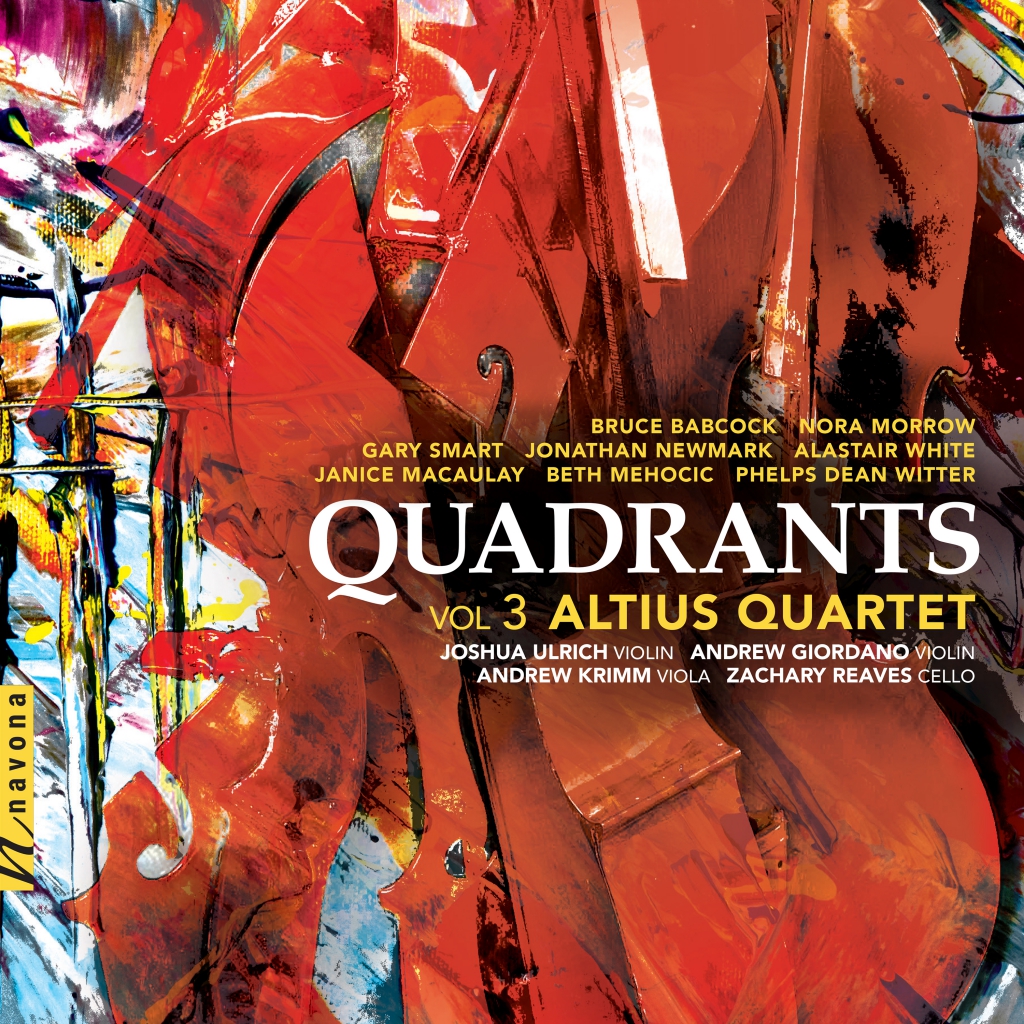
Three Fantasies on African American Songs on QUADRANTS VOL 3 is now available for streaming or purchase through Navona Records. Click here to explore this new album.
